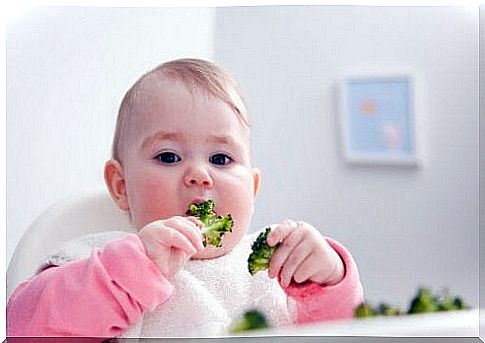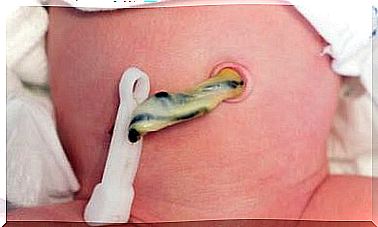6 Tips On How To Control Your Baby’s Weight

A baby’s weight is an essential factor that contributes to its overall growth. During its first months of life, you need to make sure that your baby’s weight is within the range recommended for its age.
We need to be careful about the weight a baby puts on at this stage of life. Although obesity at first is not something to worry about, it can lead to serious health problems if it persists.
The other extreme is just as harmful. It means that the child is under the desired weight for his age.
So how can you control your baby’s weight and make sure it’s healthy? Use the following tips:
Tips for controlling your baby’s weight
1. Amma
Some mothers do not have the opportunity to breastfeed. Others can only breastfeed for a short time. However, whenever possible, breastfeeding is the best way to start feeding.
Breast milk is the only food that satisfies a baby’s nutritional needs. In addition, it is almost impossible to give babies more food than they need while breastfeeding.
Although a baby hold on the chest for a long time as a STREAMS it is generally not more than 10 to 15 minutes.
Crying does not have to mean hunger
Babies cry for many reasons. Sometimes it is because they are hungry and other times it is because they are tired, scared, overstimulated, uncomfortable or because they simply want to be picked up.
If you feed the baby as soon as it cries and it does not stop, try other solutions before offering it food again.
If you respond with food as soon as a baby cries, it may begin to associate food as the only thing that can satisfy its needs.
This creates an unhealthy association with food that is difficult to break in the future.

3. Eutrophication is not healthy
It is natural that you want the child to finish what is on the plate or in the bottle. But if it stops eating, you should also respect these signals.
You should stop feeding children when they are full. Respect the healthy limits set by their bodies.
When children are not yet speaking, they clearly give them other signals when they are full. A gesture, a sound or a special movement, should make us aware that they do not need more food.
This should be reconsidered if the child is underweight and may then need a special diet.
In such cases, you should follow the advice given by a hired specialist. This will give you recommendations on appropriate techniques and strategies to use.
4. Healthy solid foods
After 6 months , you can start offering healthy alternatives to solid foods.
The foods that are most recommended for controlling your baby’s weight are fruits, vegetables, fish and lean meats.
Your child will not be afraid of anything you offer. Take advantage of this stage before it becomes selective.
Offer as many types of food as possible. A varied diet rich in nutrients will ensure you a good physical and cognitive development. It is also a good starting point for establishing good eating habits.
5. Family meals from an early age
From the moment children can sit, it’s time to bring them to the dining table to eat with the family. Children who eat with their parents and siblings are less likely to become overweight in the future.
In addition, family dinners help strengthen emotional bonds.

6. Frequent physical activity
One of the best ways to control your baby’s weight is to perform physical activity from an early age.
There are exercises that babies can perform from birth to help them strengthen their muscles. A balanced diet should be supplemented by a daily routine that includes physical activity.
As they grow up, they will carry out the habits they learned in their childhood. What do you want their eating habits to look like in the future?









